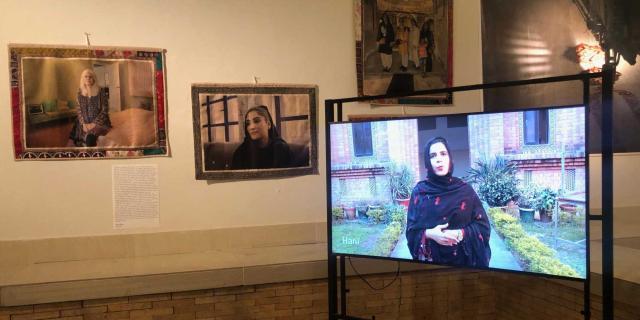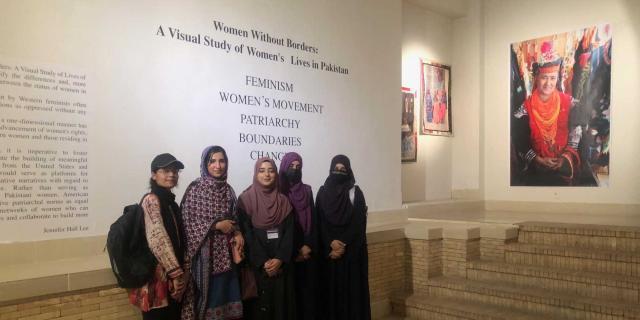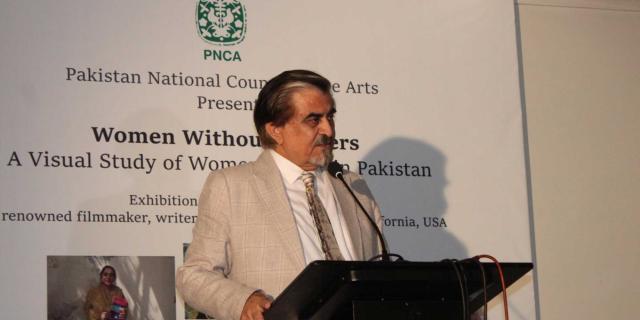Hampshire College Alum Jennifer Hall Lee 81F Presents Cross-Cultural Exhibit to Foster Connections Between the Women of Two Nations

In a multimedia show comprising portraits and stories, Lee urges Pakistani and American women to find common ground for struggles and resilience.
Jennifer Hall Lee 81F is a renowned documentary filmmaker, writer, and social activist from California. She recently presented Women Without Borders: A Visual Study of Women's Lives in Pakistan, part of ongoing work she has been doing with the women at the International Islamic University since 2013.
The exhibit — which is composed of photographs and video clips — opened at the Pakistan National Council of the Arts, in Islamabad, on November 2, and will be on display in a gallery space in the Pasadena, California, area this spring. The Pakistan Minister of Arts and Culture Jamal Shah gave an address opening the exhibit, with U.S. and Canadian embassy representatives in attendance.
“We always planned to have two shows — one in Pakistan and another in the United States,” Lee says. Her goal with the project, she says, is “to identify the differences and, more important, the commonalities between the status of women in Pakistan and in the United States. Cross-cultural studies carried out by Western feminists often depict women in developing nations as oppressed, without any agency.”
Lee interviewed an array of women in Pakistan: several from the country’s 1980s women's movement, a professor who wrote a glossary of feminist terms in Urdu for her students, a public school teacher who protested the privatization of public schools, a single backpacker (rare in Pakistan), students, a disabilities activist, and women living in desert and mountain areas. Their narratives are posted next to their portraits, which are printed on jute with handsewn borders by the women of Behbud, a clothing-design company that not only hires women, but also provides medical care and schooling for the children of the women it employs.
Issues of patriarchy, boundaries, and feminist movements are addressed in the women’s stories. Participating Pakistani student Ayesha Jaffar wrote: “I think freedom of movement is inhibited by the system I live in and I think that’s the biggest difference between women in Pakistan and women elsewhere . . . I can’t so much as go down to the corner shop which is five minutes away without bringing my brother with me.”
“It is imperative to foster collaborative efforts that facilitate the building of meaningful relationships between women from the United States and women in Pakistan,” Lee says. “Rather than serving as counterproductive saviors of Pakistani women, American women must challenge restrictive patriarchal norms as equal partners and create powerful networks of women who can overcome a variety of challenges and collaborate to build more equitable social structures.”






